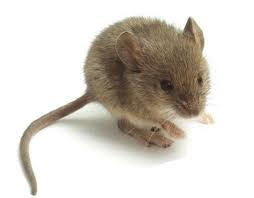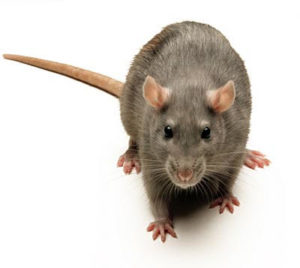Rodent Control: We understand Rodents, Mice and Rats can be a serious health threat and hazard. Our Rodent Program consists of trapping techniques and baits proven to quickly gain control of these disease spreading rodent pests.
Call Us Today (918) 282-7621Rodent Control – Mice, Rats, Broken Arrow, Bixby, Jenks, OK
Rat | Mouse | Rodent Pest Control | Jenks | Broken Arrow | Bixby
At EnviroTech Exterminating, we understand that Rodent Mice and Rats can be a serious threat and health hazard. This is why our rodent control program consists of trapping and baits proven to work quickly to gain control of these disease spreading rodent pests. Our rodent program is available to residential and commercial customers in the Tulsa, Broken Arrow, Jenks, Bixby and Coweta metro areas. Don’t wait till the rodent population is out of control. Call EnviroTech Exterminating at (918) 282-7621 before these rodent pest critters infiltrate your property. Worldwide, rats and mice spread over 35 diseases. These diseases can be spread to humans directly through handling of rodents, through contact with rodent feces, urine, or saliva, or through rodent bites. Diseases carried by rodents can also be spread to humans indirectly, through ticks, mites or fleas that have fed on an infected rodent.
House mice contribute to the spread of several human and animal diseases, including bubonic plague. They also have been known to carry a virus that may contribute to breast cancer in humans. Where abundant, house mice consume large quantities of crops and contaminate foods with their droppings.
Rodent Mice and Rats can destroy woodwork, furniture, upholstery, and clothing. House mice generally live close to humans, in places like houses and barns. Some individuals spend the summer in fields and move into barns and houses with the onset of cool autumn weather. In protected environments, such as your home, they often live two to three years.
House mice have a polygynous mating system, where each male mates with multiple females. House mice are able to reproduce throughout the year, often having 5-10 litters each year. Pregnancy lasts for 19 to 21 days and 5 to 6 young are born per litter, though there can be as many as 12. Young weigh about 1 gram at birth and are naked, blind, and helpless. The babies are nursed for up to 21 days and reach adulthood at 5 to 7 weeks old.
When living with humans, house mice nest in roofs, in woodpiles, storage areas, or any hidden spot near a source of food. They make their nests from rags, paper, or other soft substances. House mice are generally most active at night, although some are active during the day. House mice are quick runners (up to 8 miles per hour), good climbers, jumpers, and also swim well. Despite this, they rarely travel far from their homes. House mice are generally considered both territorial and colonial when living near humans. Within a group that lives together, there is usually one male with several females and their babies.
Worldwide, rats and mice spread over 35 diseases. These diseases can be spread to humans directly through handling of rodents, through contact with rodent feces, urine, or saliva, or through rodent bites. Diseases carried by rodents can also be spread to humans indirectly, through ticks, mites or fleas that have fed on an infected rodent.
House mice contribute to the spread of several human and animal diseases, including bubonic plague. They also have been known to carry a virus that may contribute to breast cancer in humans. Where abundant, house mice consume large quantities of crops and contaminate foods with their droppings.
Rodent Mice and Rats can destroy woodwork, furniture, upholstery, and clothing. House mice generally live close to humans, in places like houses and barns. Some individuals spend the summer in fields and move into barns and houses with the onset of cool autumn weather. In protected environments, such as your home, they often live two to three years.
House mice have a polygynous mating system, where each male mates with multiple females. House mice are able to reproduce throughout the year, often having 5-10 litters each year. Pregnancy lasts for 19 to 21 days and 5 to 6 young are born per litter, though there can be as many as 12. Young weigh about 1 gram at birth and are naked, blind, and helpless. The babies are nursed for up to 21 days and reach adulthood at 5 to 7 weeks old.
When living with humans, house mice nest in roofs, in woodpiles, storage areas, or any hidden spot near a source of food. They make their nests from rags, paper, or other soft substances. House mice are generally most active at night, although some are active during the day. House mice are quick runners (up to 8 miles per hour), good climbers, jumpers, and also swim well. Despite this, they rarely travel far from their homes. House mice are generally considered both territorial and colonial when living near humans. Within a group that lives together, there is usually one male with several females and their babies.
 Rats are various sized, long-tailed rodents of the superfamily Muroidea. “True rats” are members of the genus Rattus, the most important of which to humans are the black rat, Rattus rattus, Roof Rat and the brown rat, Rattus norvegicus, Norway Rat. Rats are typically distinguished from mice by their size; they are generally large muroid rodents, while mice are generally small muroid rodents.
Rats can do a great deal of structural damage to a home and are known carriers of disease. These rodents can jump up to seven feet and are typically good swimmers. Rats can squeeze into holes as small as the rats head and rats breed much like the common mouse.
Rats are various sized, long-tailed rodents of the superfamily Muroidea. “True rats” are members of the genus Rattus, the most important of which to humans are the black rat, Rattus rattus, Roof Rat and the brown rat, Rattus norvegicus, Norway Rat. Rats are typically distinguished from mice by their size; they are generally large muroid rodents, while mice are generally small muroid rodents.
Rats can do a great deal of structural damage to a home and are known carriers of disease. These rodents can jump up to seven feet and are typically good swimmers. Rats can squeeze into holes as small as the rats head and rats breed much like the common mouse.
